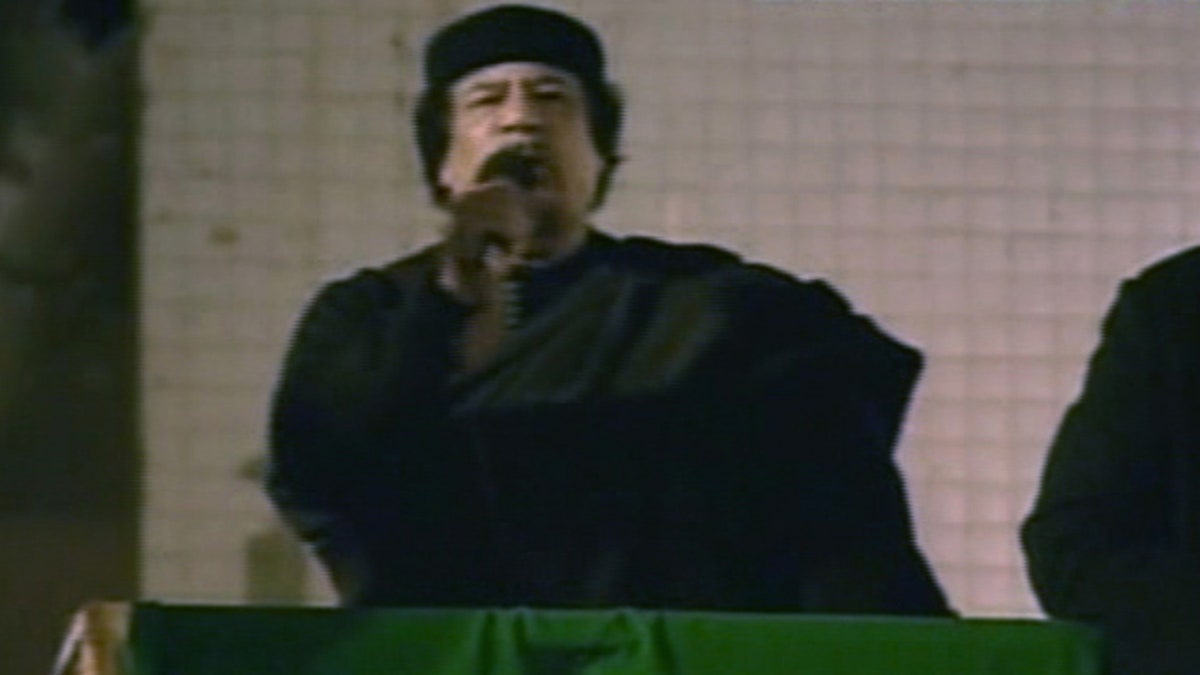
March 22: This image taken from Libyan State TV shows Libyan leader Muammar al-Qaddafi as he talks to a large crowd in Bab El Azizia, Libya. (AP2011)
A U.S. official tells Fox News that the Libyan leader Col. Muammar al-Qaddafi has more than three dozen homes spread across the country, adding that the key word is "variety."
The official told Fox News that Qaddafi has large compounds, urban apartments, villas and tents. "He's [Qaddafi] a guy who goes big and goes small," the official said.
As a dictator, Qaddafi also takes properties at will.
Qaddafi's compound in Tripoli is half a mile wide and three quarters of a mile long, the size of several dozen football fields. The compound includes heavy fortifications, and the so called "House of Resistance."
This is Qaddafi's old home which was partially destroyed in 1986 by U.S. bombs in retaliation for Libya's attack on a German disco where two American service members were killed. It was renamed the House of Resistance and outside is a large gold statue -- a giant gold clenched fist, crushing an American plane – which has become a Libyan symbol of defiance.
This week journalists were taken on a tour of the sprawling compound.
Documents on site showed the underground bunker had been inspected as recently as January and the manufacturer was a Swiss company called Luwa. In published reports, the company was linked to Saddam Hussein's bunkers in Iraq beneath the presidential palaces.
A former member of Congress, Republican Pete Hoekstra who met with Qaddafi three times between 2004 and 2009 told Fox News that Qaddafi was ruthless and clever, and that every meeting was an interesting journey.
"The first time that we met with him we landed in Surt early in the morning. And for the next five or six hours we were driving around Libya. Each of us assigned into our own Mercedes," Hoekstra said. "And you know in a train of Mercedes seven or eight long and you know, six hours later we finally pulled up to a tent in the middle of the desert." Hoekstra added that Qaddafi showed up at the tent a half hour later.
It is believed that Qaddafi is now constantly on the move for security reasons, like Bin Laden and Saddam Hussain, after the invasion of Iraq.
